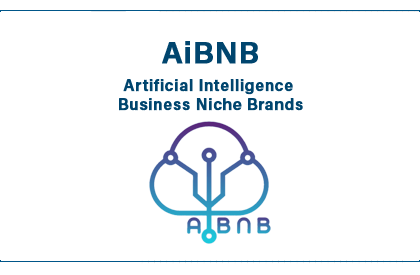Predictive Investment Tools
Real estate investors heavily rely on data-driven insights, with 75% utilizing AI tools for market trend analysis and future growth prediction. AI’s integration into real estate is transforming market trend analysis and investment prediction. It empowers professionals to make more informed decisions and outmaneuver competitors. Sophisticated real estate AI tools now offer predictive investment tools, aiding investors in identifying profitable opportunities and reducing risks.

The real estate industry’s evolution is driven by AI, with predictive investment tools and real estate AI tools at its core. As the industry continues to evolve, the need for AI-powered solutions will grow. These solutions provide actionable insights, crucial for business success.
Introduction to Real Estate Market Trends
Real estate market trends are in constant flux, necessitating investors to stay abreast of the latest developments to remain competitive. AI tools facilitate trend analysis, offering predictive investment tools for informed decision-making. AI’s role extends beyond trend analysis, crucial in investment prediction, aiding in identifying potential opportunities and risks.
Key Takeaways
- 75% of real estate investors rely on data-driven insights to inform their investment decisions
- AI-powered tools are revolutionizing market trend analysis and investment prediction in real estate
- Predictive investment tools can help investors identify lucrative opportunities and mitigate risks
- Real estate AI tools are becoming increasingly sophisticated and widely adopted
- The integration of AI in real estate is driving business success and transforming the industry
- Market trend analysis and investment prediction are critical components of real estate investing
- AI-powered solutions can provide actionable insights and drive business growth in real estate
The Evolution of AI for Real Estate
The real estate sector has undergone a profound metamorphosis with the advent of Artificial Intelligence (AI). AI’s role in property valuation has become indispensable, empowering agents and investors with the knowledge to make informed choices. Through machine learning, market trend analysis uncovers patterns and forecasts future developments.
AI’s primary advantage in real estate lies in its capacity to dissect vast datasets, unveiling insights into market trends and consumer behavior. This knowledge aids in forecasting housing price shifts and market demands, facilitating strategic investment decisions. Machine learning continuously refines its predictions and trend accuracy by learning from data.
AI’s applications in real estate are multifaceted:
- Predictive analytics for property valuation
- Market trend analysis and forecasting
- Automated property matching for buyers and sellers
The progression of AI in real estate has ushered in enhanced efficiency and precision across various processes. As the sector embraces AI-driven solutions, we anticipate substantial advancements in market trend analysis, property valuation, and investment strategies. Machine learning empowers investors and agents to anticipate market shifts, enabling them to make informed decisions and propel business expansion.
| Application | Benefit |
|---|---|
| Predictive Analytics | Improved accuracy in property valuation |
| Market Trend Analysis | Enhanced forecasting and decision-making |
| Automated Property Matching | Increased efficiency in buyer-seller transactions |
Understanding Modern Real Estate Market Analysis
The realm of real estate market analysis has undergone a profound transformation, thanks to the advent of predictive analytics and AI. These innovations empower professionals to make decisions with greater precision, thus mitigating investment risks and enhancing profitability. The increasing popularity of real estate forecasting software underscores its role in providing precise market predictions and trends.
Market analysis relies on diverse data sources, including historical sales data, current market trends, and demographic insights. The fusion of these data sets is essential for a thorough market comprehension. AI tools facilitate the analysis of vast datasets, unveiling patterns and trends that traditional methods might overlook.
The advantages of AI in real estate decision-making are manifold. They include enhanced accuracy, increased efficiency, and superior decision-making capabilities. Key benefits of predictive analytics in real estate encompass:
- Identifying market trends and patterns
- Predicting future market conditions
- Optimizing investment portfolios
- Reducing risk and improving returns
In summary, modern real estate market analysis has become more advanced with the integration of predictive analytics and AI. Real estate forecasting software is now a critical tool for professionals, offering precise market predictions and trends. By harnessing these technologies, real estate investors can make more informed choices, thus reducing investment risks and boosting returns.
| Technology | Benefits |
|---|---|
| Predictive Analytics | Improved accuracy, increased efficiency |
| AI-powered Tools | Enhanced decision-making, reduced risk |
| Real Estate Forecasting Software | Accurate predictions, market trends |
Machine Learning Applications in Property Valuation
AI has transformed the valuation of properties, introducing a new era in housing market analysis. Through the application of machine learning algorithms, investors can now forecast property value growth, rental income, and ROI with precision. This is made possible by analyzing vast datasets, encompassing historical sales, market trends, and economic indicators.
Investment prediction software, a cornerstone of property trend analysis, empowers investors with data-driven insights. These tools, driven by sophisticated algorithms, dissect market data, unveiling future trends and investment prospects. By harnessing these tools, investors can effectively mitigate risks and enhance returns.
The advantages of integrating machine learning into property valuation are manifold:
- Enhanced precision in property value predictions
- Superior identification of investment opportunities
- Streamlined data analysis and processing
Yet, it is imperative to acknowledge the limitations of machine learning in property valuation. The efficacy of these models hinges on the quality and volume of training data. Thus, it is critical to verify the data’s reliability, timeliness, and relevance to the analyzed market.
Predictive Analytics: Transforming Real Estate Investment
Predictive analytics is transforming the real estate investment landscape. It offers investors data-driven insights for informed decision-making. AI-powered solutions enable the analysis of large datasets, revealing trends and patterns. This allows investors to predict market fluctuations and strategize their investments.
Real estate data analytics is pivotal in predictive analytics. It aids investors in analyzing market trends, property values, and demographic data. This analysis helps identify potential investment opportunities. AI-driven property management is also crucial, enhancing property management efficiency and maximizing returns.
Core Predictive Models
Core predictive models, such as regression analysis and machine learning algorithms, are employed. They analyze historical data to forecast future market trends. These models help investors identify potential risks and opportunities, guiding them towards data-driven decisions.
Risk assessment frameworks are essential in predictive analytics. They aid investors in identifying potential risks and developing strategies to mitigate them. AI-powered solutions enable the analysis of large datasets, helping investors identify and manage risks effectively.
Investment Opportunity Identification
Identifying investment opportunities is a critical aspect of predictive analytics in real estate. Real estate data analytics and AI-driven property management are key. They enable investors to spot potential opportunities and develop strategies to capitalize on them.
Real-Time Market Trend Analysis Tools
Real estate agents can greatly benefit from AI, which offers real-time insights into property trends and neighborhood analytics. This is made possible by real estate automation tools, such as data analytics software and machine learning algorithms.
Some of the key applications of real-time market trend analysis tools include:
- Identifying emerging trends in the real estate market
- Analyzing neighborhood demographics and property values
- Providing predictive analytics for investment decisions
Real estate tech innovations have revolutionized the way agents operate, enabling them to make decisions based on data. This allows them to stay ahead of the competition. By utilizing AI and real estate automation tools, agents can optimize their workflow and concentrate on tasks that add value.
Overall, real-time market trend analysis tools are crucial for real estate agents aiming to remain competitive in today’s fast-paced market. By embracing AI and real estate tech innovations, agents can gain a significant advantage and achieve greater success.
| Tool | Application | Benefit |
|---|---|---|
| Data Analytics Software | Market trend analysis | Identify emerging trends |
| Machine Learning Algorithms | Predictive analytics | Make data-driven decisions |
AI-Driven Property Value Forecasting
AI-driven property value forecasting is a pivotal element in the real estate sector, offering precise housing market predictions to investors and stakeholders. It empowers investors to make strategic decisions, thus reducing risks and enhancing returns through AI for real estate ROI.
The integration of smart real estate tools facilitates the examination of extensive data sets. These include historical trends, current market conditions, and demographic shifts. This data is pivotal in crafting
price trend algorithms
, which predict future property values with remarkable accuracy.
The advantages of AI-driven property value forecasting are manifold:
- Enhanced precision in housing market predictions
- Advanced AI for real estate ROI analysis
- Streamlined property valuation processes
By embracing AI-driven property value forecasting, real estate investors and professionals can secure a competitive advantage. They can make decisions backed by data, driving growth and profitability.
Smart Investment Decision Support Systems
Smart investment decision support systems are transforming the real estate sector. They offer investors data-driven insights for informed choices. These systems employ AI for rental property analysis, assessing property value growth, rental income potential, and ROI. Through real estate predictive analytics, investors can spot profitable opportunities and reduce risks.
Key advantages of these systems include:
- Accurate property valuations
- Predictive modeling for rental income and ROI
- Identification of high-growth investment opportunities
- Personalized investment recommendations
Investors benefit from AI and real estate predictive analytics. This enables them to make more informed decisions. As the real estate landscape evolves, the role of these systems will expand.
Leveraging Big Data in Real Estate Markets
Big data is transforming the real estate sector by offering profound insights into real estate market trends. Through the application of AI in real estate, big data analysis uncovers patterns and forecasts future market directions. This knowledge aids in developing predictive investment tools, enabling investors to make strategic choices.
Several approaches exist for gathering big data in real estate, including:
- Online listings and property websites
- Social media and online forums
- Government records and public databases
These methods yield a vast amount of data on real estate market trends, encompassing pricing, demand, and supply.
By harnessing big data and AI in real estate, investors can gain a significant advantage in the market. Predictive investment tools facilitate the identification of promising investment prospects and forecast future market shifts. This enables investors to make well-informed decisions, thus optimizing their returns.
| Data Collection Method | Description |
|---|---|
| Online listings and property websites | Collecting data from online listings and property websites to analyze market trends and pricing |
| Social media and online forums | Collecting data from social media and online forums to analyze market sentiment and demand |
| Government records and public databases | Collecting data from government records and public databases to analyze market trends and demographics |
ROI Optimization Through AI Technology
AI for property valuation has transformed the real estate sector, offering precise and swift methods for ROI enhancement. It empowers investors to dissect market trends, guiding them towards informed choices. The ability to analyze vast datasets swiftly and accurately is a hallmark of AI’s role in real estate investment.
Benefits of AI in ROI optimization include:
- Improved accuracy in property valuation
- Enhanced market trend analysis
- Increased efficiency in data analysis
- Better investment decisions
AI technology aids investors in identifying market risks and opportunities, enabling them to refine their investment strategies. Through machine learning algorithms, it offers deep insights into market trends, facilitating more informed decision-making.

In conclusion, AI technology holds immense potential for optimizing ROI in real estate investment. It provides efficient and accurate methods for market trend analysis and property valuation. As the real estate sector evolves, AI’s role in shaping the market is set to grow.
| Benefits of AI in Real Estate | Description |
|---|---|
| Improved Accuracy | AI technology can analyze large amounts of data quickly and accurately, providing more accurate property valuations. |
| Enhanced Market Trend Analysis | AI can analyze market trends and provide valuable insights into potential risks and opportunities. |
| Increased Efficiency | AI technology can automate many tasks, increasing efficiency and reducing the time and cost associated with data analysis. |
Automated Market Intelligence Platforms
Automated market intelligence platforms are transforming the real estate sector with AI-powered real estate solutions. These tools facilitate data-driven decision making. They offer a variety of functionalities, such as real estate data analytics and AI-driven property management tools.
The advantages of adopting these platforms include enhanced market insights, better portfolio management, and more effective investment strategies. Key features include:
- Real-time market data and analytics
- AI-driven predictive modeling and forecasting
- Automated reporting and portfolio management
- Integration with existing property management systems
Real estate investors and property managers can gain a competitive advantage by utilizing these platforms. This enables them to make more informed decisions.
| Platform Feature | Description |
|---|---|
| Real-time market data | Provides up-to-date information on market trends and conditions |
| AI-driven predictive modeling | Enables predictive forecasting and risk assessment |
| Automated reporting | Streamlines reporting and portfolio management processes |
Advanced Property Portfolio Management
Advanced property portfolio management is a critical component of real estate investment, significantly transformed by AI for real estate agents. Real estate automation tools now empower investors to manage their portfolios with enhanced efficiency and effectiveness. The advent of real estate tech innovations has led to the creation of advanced software. This software can process vast amounts of data, offering insights and recommendations that are invaluable.
The benefits of advanced property portfolio management are multifaceted. They include increased efficiency, improved decision-making, and enhanced risk management. By integrating AI and real estate automation tools, investors can refine their portfolios, reduce risks, and enhance returns. AI’s application in advanced property portfolio management spans several areas:
- Property valuation and appraisal
- Risk assessment and management
- Market trend analysis and forecasting
- Portfolio optimization and diversification
Real estate tech innovations are in a state of continuous evolution. It is imperative for investors to remain abreast of these advancements. By embracing AI and real estate automation tools, investors can secure a competitive advantage in the market. This enables them to achieve their investment objectives.
| Benefits | Description |
|---|---|
| Increased Efficiency | Automated processes and data analysis |
| Improved Decision-Making | Accurate market forecasts and risk assessments |
| Enhanced Risk Management | Identification and mitigation of potential risks |
Future-Proofing Investment Strategies
The real estate market’s evolution necessitates proactive adaptation. This involves embracing emerging technologies and market adaptation techniques within investment strategies. By leveraging housing market predictions, investors can make informed decisions. Utilizing AI for real estate ROI maximizes returns, ensuring a strategic advantage.
Adopting smart real estate tools empowers investors to outperform in the market. Key benefits include:
- Enhanced accuracy in housing market predictions
- Optimized AI for real estate ROI analysis
- Streamlined investment decision-making
Recent studies indicate that AI for real estate ROI significantly boosts investment returns. Combining this with smart real estate tools and housing market predictions forms a robust, future-proof strategy.

Adaptability is paramount as the real estate market evolves. Embracing new technologies and techniques ensures investment strategies remain effective and profitable over time.
| Emerging Technology | Market Adaptation Technique | Benefit |
|---|---|---|
| AI-powered analysis | Predictive modeling | Improved accuracy in housing market predictions |
| Machine learning | Real-time data analysis | Enhanced AI for real estate ROI analysis |
| Smart real estate tools | Automated investment decision-making | Increased efficiency in investment decision-making |
Impact of AI on Real Estate Decision Making
The integration of AI in real estate has profoundly altered decision-making processes, notably in the realm of rental property analysis. AI facilitates investors in making decisions grounded in data, thus diminishing the risk associated with investment. The role of real estate predictive analytics is equally significant, aiding in the identification of market trends and patterns. This enables investors to maintain a competitive edge.
Utilizing AI in real estate decision-making offers several advantages:
- Improved accuracy in property valuations
- Enhanced risk assessment and management
- Identification of investment opportunities
AI tools can dissect vast datasets, encompassing market trends, demographic shifts, and economic indicators. This analysis yields insights that guide investment choices. For example, aids investors in pinpointing regions with substantial growth potential. Such insights empower them to make strategic decisions.
In summary, AI’s influence on real estate decision-making is profound, with its applications and advantages being extensive. As the real estate sector evolves, the reliance on AI for rental property analysis and predictive analytics will escalate. This trend is crucial for investors aiming to make well-informed decisions.
| Benefits of AI in Real Estate | Description |
|---|---|
| Improved Accuracy | AI-powered tools can analyze large datasets to provide accurate property valuations |
| Enhanced Risk Management | AI can identify potential risks and provide strategies for mitigation |
| Investment Opportunities | AI can identify areas with high growth potential, allowing investors to make informed decisions |
Conclusion
The real estate sector’s evolution is marked by the growing importance of artificial intelligence (AI). AI tools have transformed how investors and professionals analyze market trends, predict property values, and refine investment strategies. This transformation is crucial for staying competitive in a rapidly changing market.
AI’s role in predictive analytics and real-time market intelligence platforms has significantly enhanced decision-making. It allows stakeholders to reduce risks and maximize returns. For example, AI-driven property valuation models offer a more precise and data-driven method for assessing asset values. This helps investors identify undervalued opportunities, leading to better investment decisions.
The use of big data and machine learning algorithms has empowered real estate professionals. They can now uncover hidden patterns, forecast market shifts, and develop proactive investment plans. This technological advancement streamlines decision-making and future-proofs investment strategies. It ensures that real estate portfolios remain resilient and adaptable to dynamic market conditions.
The future of the real estate industry looks promising with AI’s transformative power. It promises enhanced market analysis, personalized investment recommendations, and seamless portfolio management. By leveraging these advanced technologies, real estate professionals can stay ahead, capitalize on emerging trends, and deliver superior returns for their clients.
FAQ
What is the role of AI in real estate market trend analysis?
AI tools analyze vast datasets to uncover real estate trends and forecast price changes. They use machine learning to offer real-time insights into property trends and neighborhood analytics. This aids real estate professionals in making strategic investment choices.
How does AI improve property valuation?
AI-driven models assess property value growth, rental income, and ROI for precise valuations. These models enhance traditional appraisal methods, leading to better investment decisions.
What are the benefits of using predictive analytics in real estate investment?
Predictive analytics, powered by AI, aid investors in assessing risks and spotting lucrative opportunities. It optimizes portfolio performance through advanced predictive models and risk frameworks.
How do real-time market trend analysis tools benefit real estate professionals?
AI-driven tools offer instant insights into property trends and market data. This empowers real estate agents and investors to make timely, informed decisions, staying competitive and capitalizing on new opportunities.
What are the advantages of AI-driven property value forecasting?
AI models predict future property values and rental income using trend algorithms and growth indicators. This aids investors in making accurate decisions and maximizing returns.
How do smart investment decision support systems powered by AI benefit real estate investors?
AI-driven systems evaluate property growth, rental income, and ROI. They provide data-driven insights, guiding investors towards profitable decisions.
What are the key benefits of leveraging big data in real estate markets?
AI tools help collect and analyze vast data, aiding in trend identification and strategy optimization. This data supports informed decisions on property acquisitions, pricing, and management.
How does AI technology help in optimizing ROI for real estate investments?
AI tools analyze various factors to optimize ROI. They offer insights and recommendations, supporting more profitable investment strategies.
What are the key features and benefits of automated market intelligence platforms?
AI-powered platforms provide real-time data, predictive analytics, and decision support. They integrate data sources, analyze trends, and offer insights for informed decisions.
How does AI support advanced property portfolio management?
AI tools aid in managing portfolios by optimizing tenant selection and streamlining maintenance. They analyze performance to identify improvement opportunities and maximize returns.
What are the emerging technologies and market adaptation techniques for future-proofing investment strategies?
AI tools incorporating emerging technologies support future-proof strategies. They adapt to market changes, identify new opportunities, and mitigate risks effectively.
What is the impact of AI on real estate decision-making?
AI transforms decision-making with data-driven insights and predictive analytics. It empowers professionals to make informed, profitable choices in valuation, investment, and portfolio management.
| Thank You for visiting AIBNB |
eal estate market trends, AI in real estate, predictive investment tools, real estate AI tools, AI for property valuation, market trend analysis, machine learning in real estate, predictive analytics for real estate, AI for real estate investors, real estate forecasting software, AI in housing market analysis, property trend analysis tools, investment prediction software, AI-powered real estate solutions, real estate data analytics, AI-driven property management, AI for real estate agents, real estate automation tools, real estate tech innovations, housing market predictions, AI for real estate ROI, smart real estate tools, AI for rental property analysis, real estate predictive analytics.
real estate market trends, AI in real estate, predictive investment tools, real estate AI tools, AI for property valuation, market trend analysis, machine learning in real estate, predictive analytics for real estate, AI for real estate investors, real estate forecasting software, AI in housing market analysis, property trend analysis tools, investment prediction software, AI-powered real estate solutions, real estate data analytics, AI-driven property management, AI for real estate agents, real estate automation tools, real estate tech innovations, housing market predictions, AI for real estate ROI, smart real estate tools, AI for rental property analysis, real estate predictive analytics.
Let me know if there’s anything else I can add or refine!




